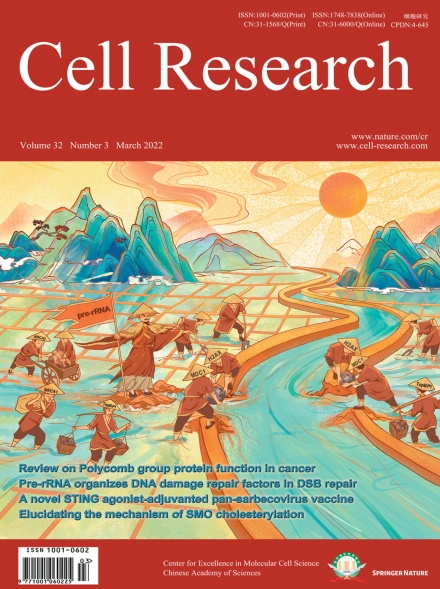
Advanced Search
Submit Manuscript
Advanced Search
Submit Manuscript
Volume 32, No 3, Mar 2022
ISSN: 1001-0602
EISSN: 1748-7838 2018
impact factor 17.848*
(Clarivate Analytics, 2019)
Volume 32 Issue 3, March 2022: 322-324 |
SARS-CoV-2 Omicron variant is highly sensitive to molnupiravir, nirmatrelvir, and the combination
Pengfei Li1 , Yining Wang1 , Marla Lavrijsen1 , Mart M. Lamers2 , Annemarie C. de Vries1 , Robbert J. Rottier3,4 , Marco J. Bruno1 , Maikel P. Peppelenbosch1 , Bart L. Haagmans2 , Qiuwei Pan1,*
1Department of Gastroenterology and Hepatology, Erasmus MCUniversity Medical Center, Rotterdam, the NetherlandsDear Editor,
Since the first outbreak in late 2019, the RNA genome of SARS-CoV-2 has been undergoing constant evolution. This is largely attributed to the viral polymerase that is intrinsically error prone and the selection pressures exerted by the host immune system. Several variants of concern harboring multiple mutations in the spike protein have emerged in the past year. The currently fast-spreading Omicron variant contains many more mutations compared with the previous variants, and most of these mutations are located around the receptor binding domain of the spike protein.1 This would dramatically, although not completely, compromise the efficacy of the existing COVID-19 vaccines.2 Nearly all the monoclonal antibodies developed for treating COVID-19 are directed to the spike protein to prevent virus entry into human cells. Thus, it is not surprising that most of these antibodies are not effective against the Omicron variant.3 Prompted by the potentially devastating impact of this new variant, we evaluated the effectiveness of two clinically available direct-acting antiviral agents on the Omicron variant in relevant experimental models.
https://doi.org/10.1038/s41422-022-00618-w